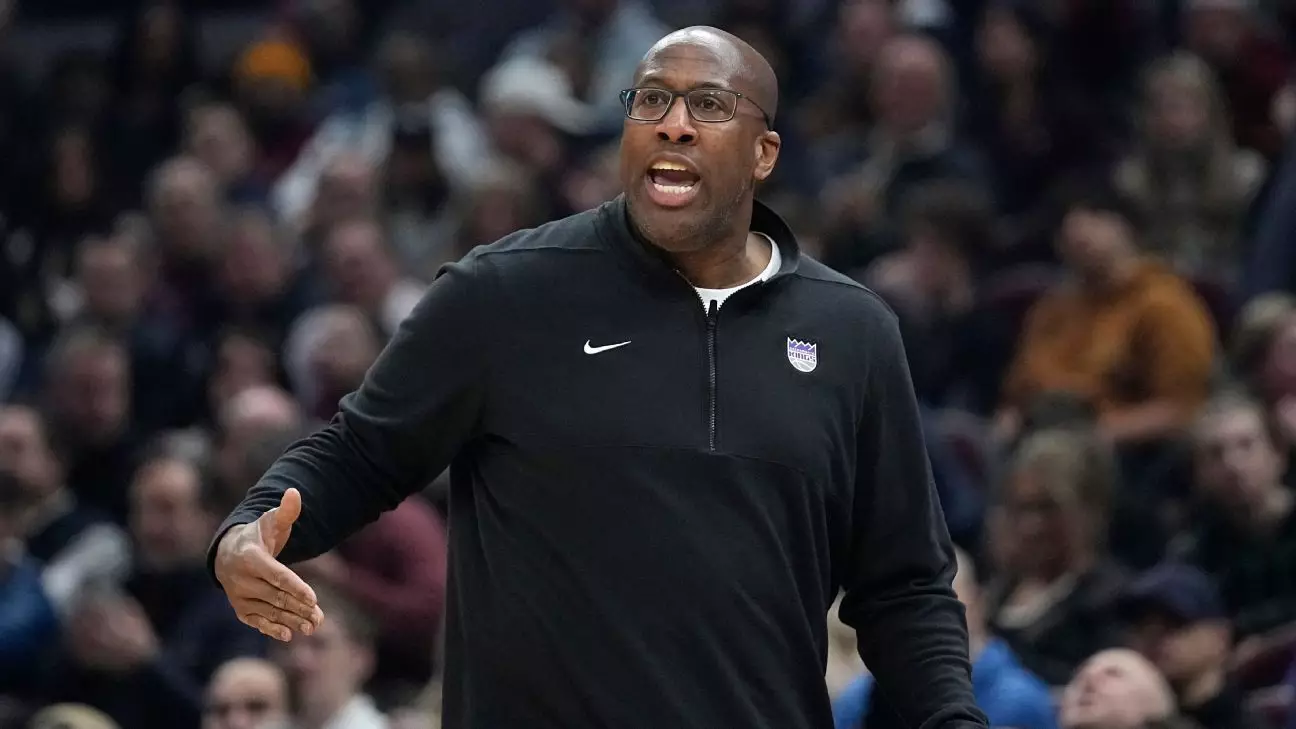The New York Knicks, a franchise steeped in ambition and a storied history, find themselves at a critical juncture. In a baffling but anticipated decision, the team parted ways with head coach Tom Thibodeau—an action that shocked many, given that he had just led the Knicks to their first Eastern Conference finals in 25 years. Such inconsistency raises eyebrows and questions surrounding the organization’s vision for its future. By looking to former coaches like Mike Brown and Taylor Jenkins as potential replacements, the Knicks might be flailing without direction and clarity on what identity they wish to embody going forward.
Interviewing the Past, Ignoring the Present
The Knicks’ aggressive pursuit of established coaches—namely Brown, fresh off a stellar season with the Sacramento Kings, and Jenkins, who was dismissed for underperforming with the Grizzlies—illustrates an unsettling trend. It seems the team is stuck in a cycle of nostalgia, looking for answers in familiar names rather than embracing innovative approaches that resonate with the modern game. What’s more troubling is their inability to secure interviews with coveted coaches like Jason Kidd and Quin Snyder. When franchises are unwilling to even entertain discussions with you, it suggests a pervasive atmosphere of disinterest; nobody wants to be involved with a sinking ship.
Cursed by Rejection
The Knicks’ coaching search this season has been riddled with rejections—an irrefutable sign of desperation. In a landscape filled with qualified coaching talent, it’s disheartening to witness the Knicks being so plainly rebuffed. The fallout from their failed attempts to engage with figures like Kidd and Snyder paints a grim picture. Such denials aren’t just bad luck; they’re symptomatic of a much deeper issue within the franchise. They reflect a wider skepticism about the Knicks’ ability to foster enduring growth or create a winning culture. If high-profile coaches are opting out of conversations, it indicates a lack of faith in the organizational infrastructure and its vision.
Aided by Missteps, Inspired by Resilience
Despite their recent misfortunes, what cannot be ignored is Brown’s remarkable success with the Kings. His leadership birthed a revival that was long overdue for the franchise, and fans deserved that taste of playoff action after a harrowing sixteen-year absence. This kind of resilience should appeal to the Knicks, who could learn from Brown’s approach. However, the temptation to mimic past glories could lead them down a more dangerous path. It’s essential that they assess whether their chosen candidates will truly address the core issues facing the franchise or simply perpetuate a cycle of mediocrity.
In seeking a new figure to lead them back to prominence, the Knicks must embrace change. They must be willing to take calculated risks, to find a coach who resonates not only with the players but also with a fan base that deserves genuine commitment to the team’s rebirth. A forward-thinking strategy is necessary, one that embraces innovation rather than clings to past successes. If the New York Knicks are truly dedicated to a brighter tomorrow, they need to look beyond comfortable faces and toward the transformative evolution of their organization.

